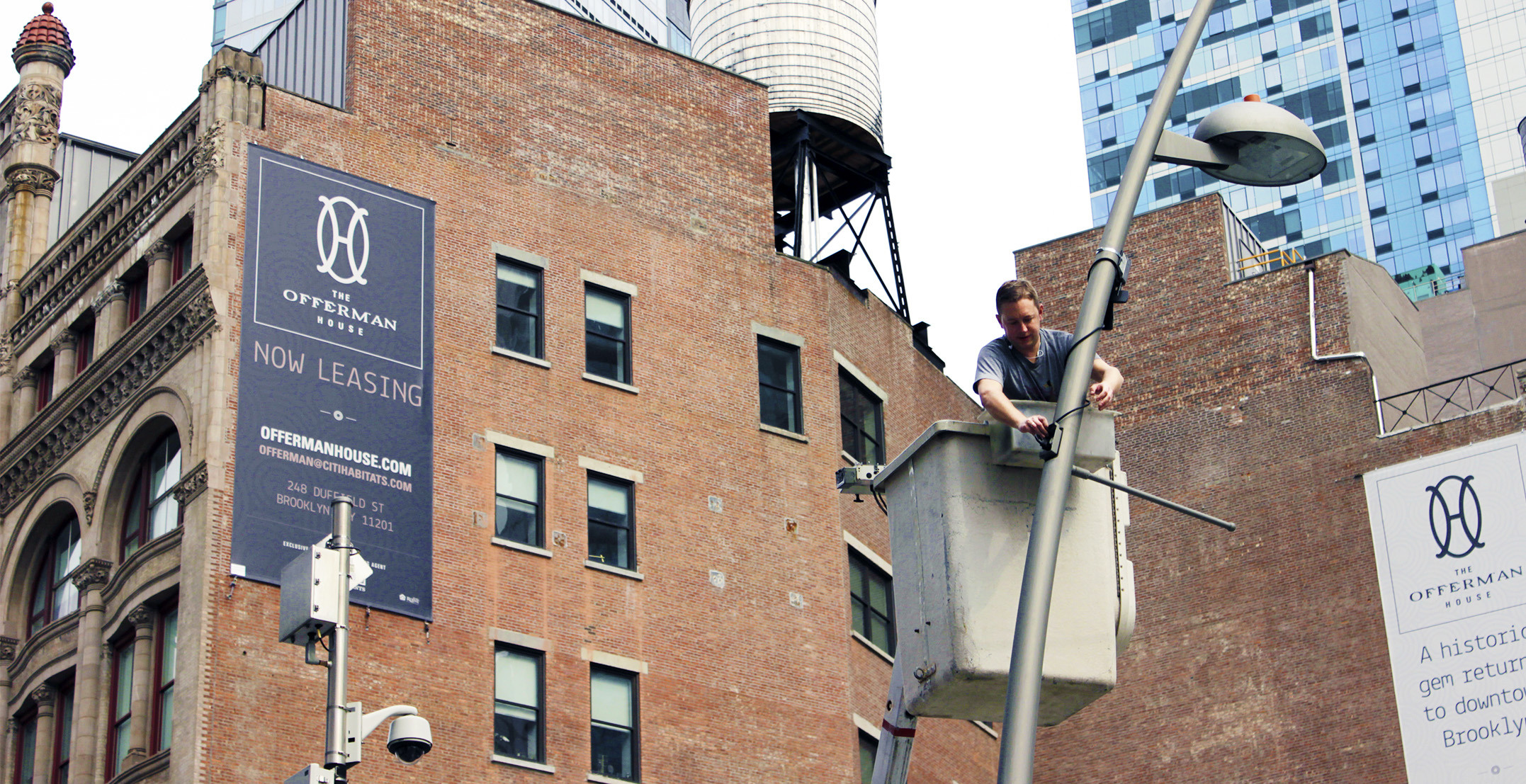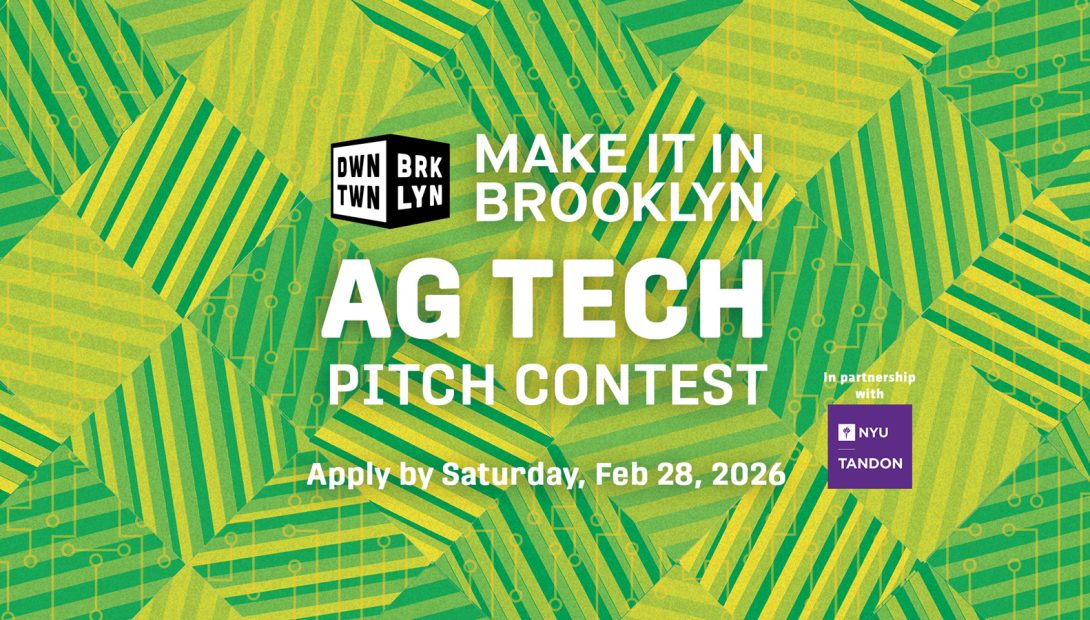With its new “Living Lab” program, Downtown Brooklyn Partnership (DBP) is partnering with tech startups to solve operational and quality of life challenges facing cities. Using DBP-operated public spaces as testing grounds for their smart city technologies, participating startups will share their data and findings with DBP for future planning purposes.
The three startups that are launching pilot studies work across a variety of fields in urban planning, including noise pollution monitoring, digital mapping and public data analysis. Their findings will be valuable to public space operators such as DBP – which manages three Business Improvement Districts across Downtown Brooklyn – enabling efficient management and strategic programming of the public realm.
Downtown Brooklyn Partnership President Regina Myer said, “Brooklyn has long been home to innovative startups, so it only makes sense that we apply this local talent right here. Smart city technology is making communities around the world safer, cleaner and more beautiful places to live, and the Living Lab program brings new, data-driven solutions that will improve the quality of life here in Downtown Brooklyn, and potentially to other cities.”
“Bringing technology outside of our own walls and into the city enables entrepreneurs to test, iterate and learn in real-time. We’re so grateful to have partners like DBP who see the value in this type of collaboration,” said David Belt, CEO & Co-Founder, New Lab.
Leveraging Downtown Brooklyn as a testing ground for smart cities entrepreneurs and technologies, DBP will continue to work closely with incubators, accelerators and entrepreneurial hubs to identify startups and generate a pipeline of potentially useful technologies.
As the Brooklyn Tech Triangle continues to grow, DBP is partnering with New Lab, a collaborative workspace based in the Brooklyn Navy Yard that’s home to over 600 entrepreneurs working in advanced technology, to make sure that local tech and innovation can be tested in Downtown Brooklyn and adapted to meet the challenges and opportunities of our transforming neighborhood. DBP will be announcing pilots and events related to this partnership this summer.
PARTICIPATING STARTUPS:
Sounds of New York City (SONYC) | Deployment: Mid-April 2018
SONYC is an NYU research initiative focused on developing an acoustic sensor network for the monitoring, analysis and mitigation of urban noise pollution.
Noise pollution is one of the topmost quality of life issues, yet most cities lack the resources for continuously monitoring noise and understanding the contribution of individual sources, the tools to analyze patterns of noise pollution at city-scale, and the means to empower city agencies to take effective, data-driven action for noise mitigation.
SONYC is deploying sensors to monitor noise pollution along the Fulton Mall. This data will help inform long-term planning for the busy corridor and assist DBP’s operations team in reporting noise pollution issues to the city.
Researchers on the program hail from NYU Center for Urban Science + Progress, NYU Steinhardt School of Culture, Education, and Human Development, NYU Tandon School of Engineering, and Ohio State University’s School of Engineering. The broader project is backed by a $4.6 million from the National Science Foundation.
Citiesense | Deployment: Fall/Winter 2017
Citiesense assembles map-based features to help community organizations like BIDs advance the neighborhood improvement process, by designing a knowledge management platform to store local real estate information and information about street conditions, as well as offering location data analysis, and tracking change over time.
Citiesense will digitize the Downtown Brooklyn Real Estate Development Matrix. Citiesense will digitize DBP’s real estate development pipeline. The platform will link properties to relevant city data, including assessed values from the Department of Finance and construction permit information from the Department of Buildings.
DBP is also working with Citiesense to create a platform that allows for images to be added to our inventory of office and retail space, and will map, warehouse, and analyze streetscape assets to expedite repairs and upgrades.
Qucit | Deployment: Late April/Early May 2018
Qucit is using AI to sort through hundreds of data sets, such as weather data, open street maps, calendars and any sensors available, and produce results that help cities better understand their public spaces. This information helps urban service providers, private operators and public institutions to improve their quality of service and make the most of their public spaces.
Qucit is working to help Downtown Brooklyn to understand its public spaces from a number of different angles through public data analysis and on-the-ground surveys.

